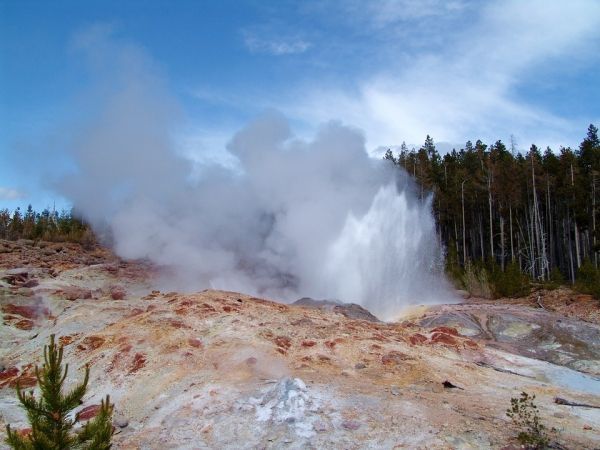When Steamboat Geyser, the world’s tallest, started erupting again in 2018 in Yellowstone National Park after decades of relative silence, it raised a few tantalizing scientific questions. Why is it so tall? Why is it erupting again now? And what can we learn about it before it goes quiet again?
The University of Utah has been studying the geology and seismology of Yellowstone and its unique features for decades, so U scientists were ready to jump at the opportunity to get an unprecedented look at the workings of Steamboat Geyser. Their findings provide a picture of the depth of the geyser as well as a redefinition of a long-assumed relationship between the geyser and a nearby spring. The findings are published in the Journal of Geophysical Research.
“We scientists don’t really know what controls a geyser from erupting regularly, like Old Faithful, versus irregularly, like Steamboat,” says Fan-Chi Lin, an associate professor with the Department of Geology and Geophysics. “The subsurface plumbing structure likely controls the eruption characteristics for a geyser. This is the first time we were able to image a geyser’s plumbing structure down to more than 325 feet (100 m) deep.”
Read more at University of Utah
Photo Credit: Steppinstars via Pixabay


